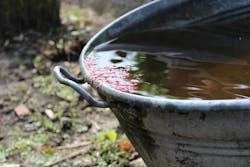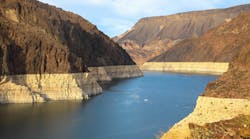Costa Rican Farmers Turn to Rainwater Harvesting
The Mexican Agency for International Development Cooperation and the United Nations' Food and Agriculture Organization (FAO) have developed a program to help Costa Rican farmers finance rainwater harvesting systems. The program focused on drought-prone areas, such as the Guanacaste region of Costa Rica, to help small farmers adapt to climate change.
According to Reuters, Costa Rica’s complex rules regarding water reuse and storage hinder farmers from implementing rainwater reuse. Farmer’s must get permits to use any water that has landed on the country’s soil, but a recent law passed allowing residents to capture and store up to 1,000 cu meters of rainwater from their roofs. Additional restrictions are in place surrounding the storage of water.
The program is already making a difference. Cattle Farmer Manuel Rojas of Hojancha, Costa Rica, recently completed the installation of a rainwater harvesting system on his small farm, funded by the program. Reuters reports the system is one of the first in the country and has a 1,000-cu-meter tank, enough to store water for four months.
“We hope that this system can help us maintain production throughout the whole year, and not only when it rains,” Rojas, who previously struggled in a drought-prone region, said.


